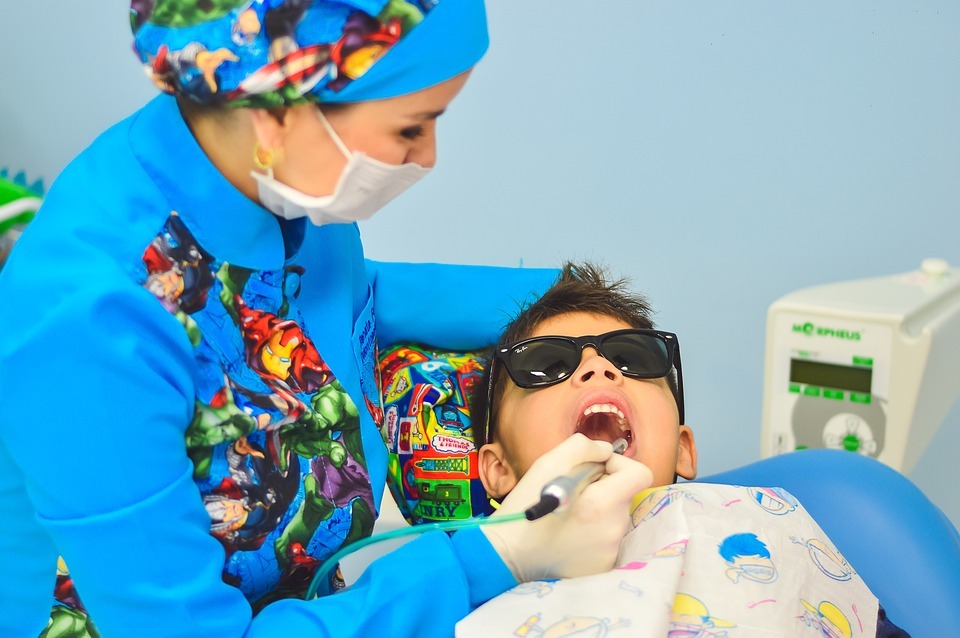Babies use pacifiers all the time, especially during their teething stage. Pacifiers are commonly used to make the teething process easier as they soothe the gums so the baby won’t feel much discomfort. However, using a pacifier for an extended period of time can cause oral problems for some children. Parents should be informed of the dangers of pacifiers and other comfort items to protect their children’s oral health. Keep reading to learn more about pacifiers and discover how to alleviate your worries.
What are pacifier teeth?
Pacifiers are highly beneficial, particularly in the first several months of a child’s life. They aid in reducing the time preemies spend in the hospital, which is a comfort for families with unwell newborns. Pacifiers teach tube-fed infants how to use a bottle. However, every parent must know that pacifiers may harm their child’s dental health.
A baby teeth develops even when a baby is still in the womb and it continue to grow up until it is ready to emerge. If the baby uses a pacifier for a long period of time (for example, up until they are 2 years old), there will be a problem with the development of their baby teeth. It will also be the case if your baby relies on pacifier and uses it more than it should be. A pacifier may cause the front teeth to shift to the side, particularly in youngsters. Buck teeth is a frequent name for this dental condition.
How do you properly use a pacifier?
Your child’s teeth can survive prolonged pacifier use if you take precautions. When you know how to use a pacifier properly, you can do it without fear or hesitation. You may help your child avoid getting dependent on a pacifier by following these guidelines if you give one to them.
- Your child should never be forced to use a pacifier. If the baby’s teething ring falls out while asleep, you shouldn’t try to put it back in their mouth.
- Never try to entice your infant to use the pacifier by mixing sugar or honey.
- Purchase an orthodontic pacifier, which is specifically designed to prevent teeth from being pushed forward as a result of regular use.
- You shouldn’t tie a ribbon or anything else onto the pacifier. Also, it is not a good idea to tie it to the crib or wrap it around the baby, as this increases the risk of accidental suffocation.
- Avoid using a pacifier as a first resort; try everything else first.
- Encourage them to forgo grunting and pointing in favor of actual speech as soon as they show symptoms of being able to do so.
A pediatric dentist will evaluate your child’s jaw, teeth, bite, and mouth to see if there’s a need for corrections. Your pediatric dentist will examine your child thoroughly to determine the necessary dental treatment.
If you’re looking for a pediatric dentist in Fredericksburg, VA, look no further than Junior Smiles of Stafford. They can help ensure that your child receives the best possible care and enjoys a lifetime of healthy teeth and gums.
How do you stop your child from using pacifiers?
Do you believe your child is reliant on a pacifier? Are you concerned that they will develop pacifier teeth? Removing the pacifier is possible through a variety of means. We’ll go over some tips here.
- Pacifiers should be phased out gradually (only in the house, only in the crib. etc.)
- A pacifier might be switched for a specific item or reward for toddlers.
- Another source of consolation could be a blanket or stuffed animal.
- If you want to get rid of it quickly, you can go “cold turkey,” but remember to use rewards.
- Everyone assisting Baby during the weaning must understand and agree with the plan.
- A child may cry, but remember that rewarding crying with a pacifier teaches the infant that crying is worthwhile to obtain the pacifier.
Several parents have used these tactics to train their children to sleep without a pacifier successfully. When everything else fails, these approaches may be beneficial for breaking the habit. Sometimes the only way to move forward is to quit doing whatever is holding you back and replace it with love, reassurance, and a new habit.
Takeaway
Pacifiers are one of the best baby tools to soothe your little one. However, if they continue to use it for a longer period of time, perhaps up to 2 years old and up, it may cause more damage than good. In that case, consider taking the pacifier away from your child after 24 months, but you should surely do it before 48 months to avoid the risk of tooth problems that may require orthodontic treatment later on. Keep your child happy by asking for advice from a professional pediatric dentist.

